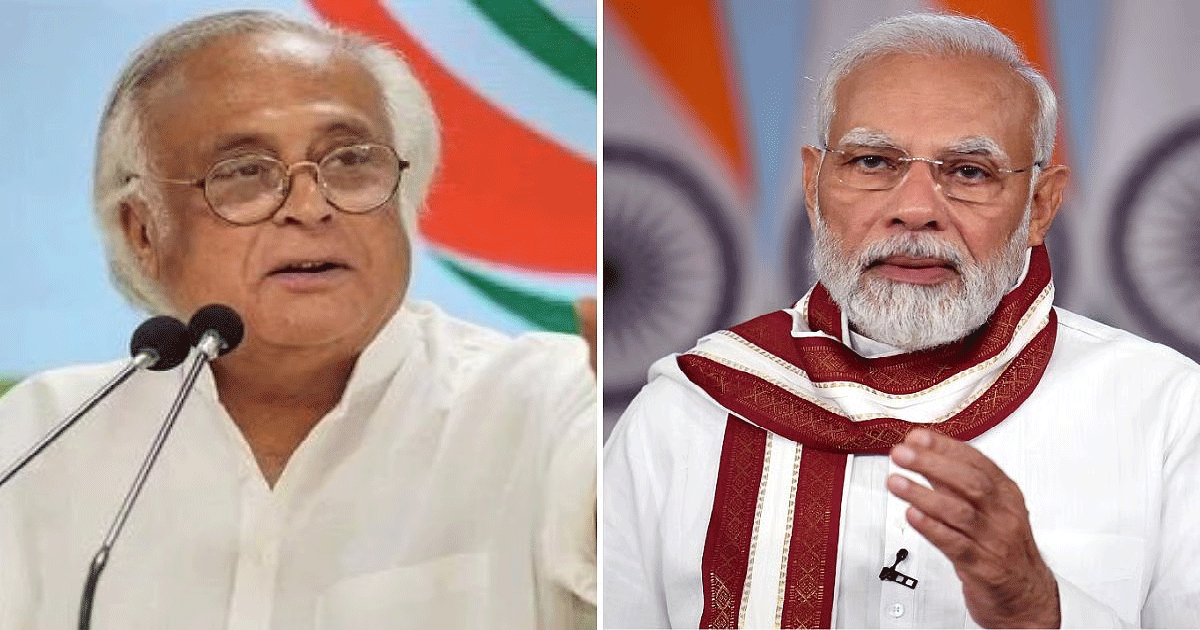National News
Arvind Kejriwal Skips ED Summon In Excise Policy Case; Delhi CM Calls Notice ‘Illegal And Politically Motivated’

New Delhi: Delhi CM Arvind Kejriwal will not appear for questioning before the Enforcement Directorate (ED) on Thursday (November 2) as he skipped the ED summon in the Excise Policy Case. He will instead hold a road show, along with Punjab CM Bhagwant Mann, in Singrauli, in the poll bound state of Madhya Pradesh, reported. Delhi Chief Minister Arvind Kejriwal, who was summoned by the Enforcement Directorate (ED) on Thursday in connection to the excise policy case, also responded to the ED’s notice to appear before the agency for questioning.
Delhi CM’s response to notice
The Delhi CM in his response called the summon notice as “illegal and politically motivated.”
The Delhi CM also accused that the notice was sent at the behest of the BJP, alleging political vendetta.
Kejriwal said that the notice was sent to ensure that he is “unable to go for election campaigning in four states.” The states of Madhya Pradesh, Rajasthan, Mizoram, Telangana and Chhatisgarh will see voting this month and the counting for the same will be on December 3.
“ED should withdraw the notice immediately.”
Delhi CM Arvind Kejriwal demanded that the notice issued to him should be withdrawn immediately.
What is the Excise Policy Case?
The Central Bureau of Investigation (CBI) and the Enforcement Directorate are probing the Delhi government’s excise policy for 2021-22 that was later scrapped. The policy allegedly favoured certain liquor dealers, accused the opposition BJP in Delhi, a charge that has denied.
Lieutenant Governor V K Saxena recommended a CBI probe
Based on a report of the chief secretary of the Delhi government, Lieutenant Governor V K Saxena recommended a CBI probe in July, 2022, into alleged irregularities in the formulation and implementation of the policy.
Alleged irregularities
The report cited various alleged irregularities including a waiver of Rs 144 crore to the retail licensees under the policy in the name of COVID-19-impacted sales and a refund of Rs 30 crore to a successful bidder for the airport zone who failed to obtain a no objection certificate for opening liquor stores there, officials said.
Another allegation was that the commission of wholesale licensees was raised from five per cent to 12 per cent in an instance of “quid pro quo.”
Maharashtra
Mumbai 26 July 2005 Floods: When City Was Submerged With 944 mm Of Rain In 24 Hours Leaving 914 Dead, Thousands Displaced

Every year, the monsoon season disrupts life across Indian cities with heavy rainfall, waterlogging and traffic chaos. But July 26, 2005, stands out as a day that etched itself into Mumbai’s history as one of its darkest and most devastating.
On that day, Mumbai received an unprecedented 944 mm of rain in just 24 hours, nearly half of its annual average. Between 8 am and 8 pm alone, 644 mm poured down. It remains the eighth-highest 24-hour rainfall ever recorded anywhere in the world. The city, unprepared for such intensity, was brought to a grinding halt.
Internet Flooded With Old Visuals, Still Haunting Mumbaikars
Several netizens took to social media to share haunting visuals from the 2005 Mumbai floods, recalling the day when the city came to a complete standstill. Many described it as an unforgettable chapter in Mumbai’s history, marked by chaos, resilience and unity.
While some reflected on the overwhelming scale of the disaster, others remembered how the crisis revealed the undying spirit of Mumbai, with strangers helping each other and communities coming together in the face of adversity.
Mumbai’s Lifeline Took Serious Hit, 52 Local Trains Damaged
As floodwaters rose, roads vanished beneath torrents of water. Local trains, the city’s lifeline, stopped completely, with tracks submerged and 52 trains damaged. Thousands were stranded in stations, schools and offices overnight. Low-lying areas like Dharavi and the Bandra-Kurla Complex were heavily inundated, while vehicles were swept away or immobilised.
The scale of disruption was staggering. Over 37,000 auto-rickshaws, 4,000 taxis, 900 BEST buses and 10,000 trucks and tempos were either damaged or rendered unusable. Even the skies were no refuge. For the first time ever, Mumbai’s airports shut down, with Chhatrapati Shivaji International Airport and the Juhu airstrip closed for more than 30 hours. More than 700 flights were cancelled or delayed, creating nationwide ripples in air traffic.
Over 900 Killed, Property Worth ₹5.5 Billion Destroyed
The economic loss was estimated at Rs 5.5 billion (around 100 million USD). But the cost in human lives and suffering was far greater. According to official reports, 914 people lost their lives, many due to drowning, electrocution and landslides. More than 14,000 homes were destroyed, leaving thousands without shelter, food or drinking water.
Communication networks also failed. Around 5 million mobile users and 2.3 million landline connections went dead for several hours, hampering emergency rescue operations. Emergency services were overwhelmed, as the city grappled with a disaster it had never imagined.
The 2005 floods served as a harsh wake-up call, exposing Mumbai’s vulnerability to extreme weather. In the years since, the government has worked on improving disaster preparedness, such as creating specialised disaster management units, upgrading early warning systems and installing floodgates and dewatering pumps at critical points.
Yet, even two decades later, as visuals from 2005 resurface each year, a haunting question persists: Is Mumbai truly prepared to face another flood of that magnitude?
National News
Congress Leader Jairam Ramesh Slams PM Modi’s ‘Boasted Friendship’ With Donald Trump, Cites US Engagement With Pakistan

New Delhi: The Congress on Saturday alleged that Prime Minister Narendra Modi’s “much boasted friendship” with US President Donald Trump is now proving to be “hollow” and cited several overtures the latter recently made to Pakistan.
In a post on X, Congress general secretary, communications, Jairam Ramesh also alleged that Indian diplomacy was failing in the light of the US partnering with Pakistan.
“The abject failure of Indian diplomacy, especially in the past two months, is revealed most tellingly by four facts. These expose the tall claims made by the Prime Minister and his drum-beaters and cheerleaders,” he said in his post.
Ramesh said that since May 10, 2025, Trump has claimed 25 times that “he personally intervened to stop Operation Sindoor, threatening India and Pakistan that if they didn’t bring the war to a halt, they would not have a trade agreement with the USA.” On June 10, 2025, he claimed, Gen Michael Kurilla, the head of the US Central Command, hailed Pakistan as a phenomenal partner of the US in countering terrorism.
On June 18, 2025, Trump held an unprecedented luncheon meeting with Pakistan Army Chief Field Marshal Asim Munir in the White House, Ramesh noted.
“Two months earlier, Munir’s inflammatory, incendiary, and communally provocative remarks had provided the backdrop to the brutal Pahalgam terror attacks on April 22, 2025,” he said.
Just yesterday, the Congress leader claimed that US Secretary of State Marco Rubio met Pakistani Deputy Prime Minister Ishaq Dar and thanked Pakistan for its partnership in countering terrorism and preserving regional stability.
“The PM’s clean chit to China on June 19, 2020, has already cost India heavily. His much boasted friendship with President Trump is now proving to be hollow,” Ramesh said in his post.
National News
Government Cracks Down on OTT Platforms Over Obscene Content

New Delhi, July 25, 2025 — In a significant move targeting explicit digital content, the Government of India has taken steps to block several over-the-top (OTT) platforms accused of streaming obscene and vulgar material. Platforms such as ALTBalaji, ULLU, and a few others have come under the scanner for allegedly violating Indian content regulations and societal norms.
The Ministry of Information and Broadcasting, acting on multiple complaints from citizens and civil society groups, initiated the ban after conducting an internal review. Authorities stated that certain shows and web series available on these platforms contained content that was “sexually explicit,” “vulgar,” and “not suitable for public viewing,” especially in households with children.
The decision has stirred a wider debate around content regulation and creative freedom in India’s rapidly growing digital entertainment sector. While officials maintain that the step was necessary to uphold decency standards and protect cultural values, critics warn of overreach and censorship.
A senior official said, “This is not about targeting creative freedom. This is about ensuring that OTT content does not cross legal and moral boundaries. There are clear guidelines, and platforms are expected to adhere to them.”
The platforms affected reportedly failed to comply with warnings issued earlier regarding their programming. Despite advisory notices and reminders to filter or restrict adult content, several web series continued to feature nudity, explicit scenes, and suggestive themes without proper age-gating or viewer discretion tools.
In recent years, OTT platforms have grown in popularity, especially among younger audiences, with many bypassing traditional film and TV regulations. The government had previously introduced a self-regulation framework for digital content providers, but critics say enforcement has been lax, leading to the current clampdown.
Some media rights advocates and artists expressed concern over the lack of transparency in the banning process and called for an independent review mechanism. Others, however, welcomed the move, stating that unchecked access to graphic content could have a detrimental effect on social behavior and minors.
As of now, the banned platforms remain inaccessible in India. The Ministry has hinted at further actions if other OTT providers do not align their content with the prescribed code of ethics and IT rules.
This development marks a turning point in India’s digital media regulation and sets the stage for possible stricter content monitoring across streaming platforms in the future.
-

 Crime3 years ago
Crime3 years agoClass 10 student jumps to death in Jaipur
-

 Maharashtra10 months ago
Maharashtra10 months agoMumbai Local Train Update: Central Railway’s New Timetable Comes Into Effect; Check Full List Of Revised Timings & Stations
-

 Maharashtra10 months ago
Maharashtra10 months agoMumbai To Go Toll-Free Tonight! Maharashtra Govt Announces Complete Toll Waiver For Light Motor Vehicles At All 5 Entry Points Of City
-

 Maharashtra10 months ago
Maharashtra10 months agoFalse photo of Imtiaz Jaleel’s rally, exposing the fooling conspiracy
-

 Crime10 months ago
Crime10 months agoBaba Siddique Murder: Mumbai Police Unable To Get Lawrence Bishnoi Custody Due To Home Ministry Order, Says Report
-

 National News10 months ago
National News10 months agoMinistry of Railways rolls out Special Drive 4.0 with focus on digitisation, cleanliness, inclusiveness and grievance redressal
-

 Maharashtra9 months ago
Maharashtra9 months agoMaharashtra Elections 2024: Mumbai Metro & BEST Services Extended Till Midnight On Voting Day
-

 National News10 months ago
National News10 months agoJ&K: 4 Jawans Killed, 28 Injured After Bus Carrying BSF Personnel For Poll Duty Falls Into Gorge In Budgam; Terrifying Visuals Surface












